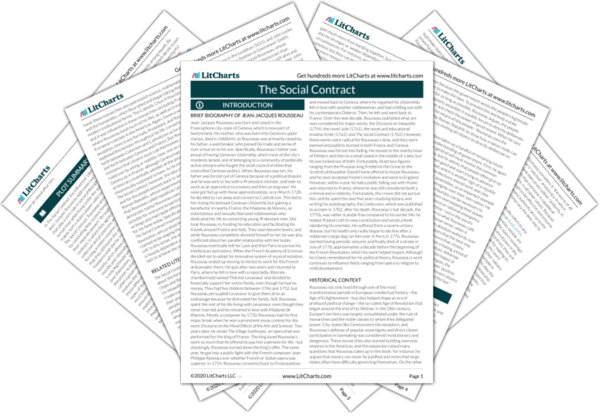Nation Quotes in The Social Contract
Whoever ventures on the enterprise of setting up a people must be ready, shall we say, to change human nature, to transform each individual, who by himself is entirely complete and solitary, into a part of a much greater whole, from which that same individual will then receive, in a sense, his life and his being. The founder of nations must weaken the structure of man in order to fortify it, to replace the physical and independent existence we have all received from nature with a moral and communal existence. In a word each man must be stripped of his own powers, and given powers which are external to him, and which he cannot use without the help of others. The nearer men’s natural powers are to extinction or annihilation, and the stronger and more lasting their acquired powers, the stronger and more perfect is the social institution.
The better the state is constituted, the more does public business take precedence over private in the minds of the citizens. There is indeed much less private business, because the sum of the public happiness furnishes a larger proportion of each individual’s happiness, so there remains less for him to seek on his own. In a well-regulated nation, every man hastens to the assemblies; under a bad government, no one wants to take a step to go to them, because no one feels the least interest in what is done there, since it is predictable that the general will will not be dominant, and, in short, because domestic concerns absorb all the individual’s attention. Good laws lead men to make better ones; bad laws lead to worse. As soon as someone says of the business of the state—“What does it matter to me?”—then the state must be reckoned lost.
It is useless to separate the morals of a nation from the objects of its esteem; for both spring from the same principle and both necessarily merge together. Among all the peoples of the world, it is not nature but opinion which governs the choice of their pleasures. Reform the opinions of men, and their morals will be purified of themselves. Men always love what is good or what they think is good, but it is in their judgement that they err; hence it is their judgement that has to be regulated. To judge morals is to judge what is honoured; to judge what is honoured, is to look to opinion as law.










